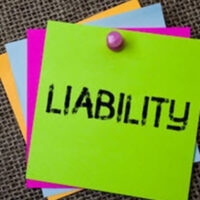What Is Negligent Entrustment?

When you are injured in an accident, it is important to hold everybody responsible who may have contributed to your injuries. Part of doing that is looking to see not just who was negligent, but who may have been indirectly negligent. People who are indirectly negligent are usually thought of, in plain terms, as being negligent because of the actions of another.
Negligent Entrustment
It may seem unfair to hold someone liable for the actions of another person, but often there are special relationships between people that result in a person to be liable for the acts of another person in the eyes of the law. A classic example of this is the parent or adult being liable for the actions of a minor child.
Adults can often be sued under a legal theory called negligent entrustment. As the name implies, this is a theory that holds someone liable for allowing someone else access to, or the ability to use, something that is potentially dangerous.
Examples of Entrustment
Imagine a teenager that harms someone with a gun. If the gun belonged to the parents, and was in the control and custody of the parents, and the parents knew of and allowed the child to use it, the parents can potentially be liable for the injuries caused by the minor.
The same holds true with things like cars, golf carts, ATVs or water skis—any large item that a minor likely should not be using freely, can be dangerous, and thus, a parent or guardian who allows the child to use them freely, can be liable for the damages caused by the minor.
Negligent entrustment isn’t just for parents and kids. Imagine a store that allows an employee to drive a large truck, or carry a weapon, when that employee should not be doing so. Perhaps the employee has a criminal record, or something in his or her background that would lead someone to believe that he or she shouldn’t be freely driving a large vehicle or carrying a weapon.
The employer can be held liable for trusting the employee with the truck, weapon, or other item.
No Express Permission Needed
There doesn’t have to be express permission either. So, an employer that leaves a weapon around freely, for employees to see, access and use, can be liable for injuries caused by an employee, even if the employee was not supposed to take or use the weapon.
The same holds true for cars—even if a child is not allowed to use the family car, if parents leave keys around and look the other way when the child takes the keys, they can be liable, even though they never intended to allow the child to use the keys or the vehicle.
We can help you figure out everybody who may be responsible for your accident and your injuries. Contact the Miami personal injury attorneys at Velasquez & Associates P.A.
Sources:
greatamericaninsurancegroup.com/content-hub/news-details/negligent-entrustment-what-it-is-and-why-you-should-be-concerned
cna.com/web/wcm/connect/563a904f-ed56-40fd-9bb7-809d2f014e96/RC_Auto-Negligent-Entrustment-Guide.pdf?MOD=AJPERES
